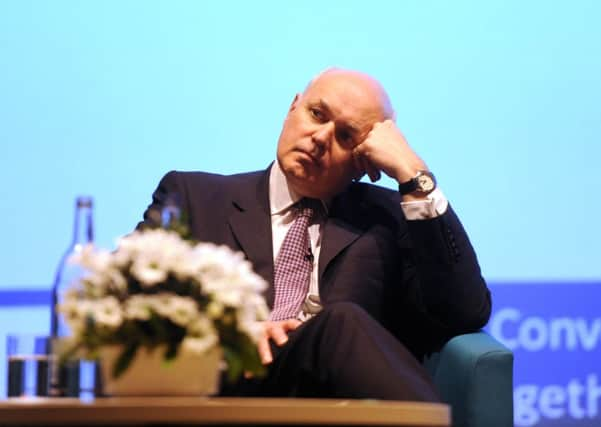Jeff Salway: What will and won’t happen in 2014


These days, however, forecasting is more of a mug’s game than it’s ever been.
Believe me, I’ve taken the time to check what was read in the tea leaves a year ago. Put it this way: it does very little for one’s faith in bank economists and equities fund managers in particular (to say nothing of finance journalists).
Advertisement
Hide AdAdvertisement
Hide AdWith that in mind, and perhaps unwisely, here are a few thoughts on what lies in store over the coming year.
WHAT WILL HAPPEN
There is belated scrutiny of the profiteering of pension providers as the regulator finally takes on the annuity market. For too long the odds have been stacked against pension savers at retirement, but there’s a growing appetite for real reform. The fear, however, is that it’ll stop short of taking the much-needed step of banning commission on non-advised annuity sales.
Automatic enrolment into workplace pensions has so far been smooth, with only a small minority opting out. But it’s about to get real, and not without controversy. The number of firms having to shift workers into pension schemes is about to rocket and many are unprepared. The surge may be too much for some pension providers, a number of whom will walk away, plunging the reforms into chaos.
Packaged current accounts will snowball into the next big mis-selling scandal, just as Tesco Bank enters the fray as the first real mass-market challenger to the big five high-street banks. Complaints about current accounts have risen sharply since new rules introduced in March forced providers to tell customers exactly what they are paying for. The issue will only escalate as more people realise that their paid-for account is a rip-off.
WHAT WON’T HAPPEN
Payday lenders will from April be regulated by the Financial Conduct Authority, which is under political pressure to kick-start a crackdown on the sector by introducing a loan cap. But politics and regulation are rarely happy bedfellows and those expecting the payday lending sector to clean up its act overnight will be disappointed.
There are genuine fears of a house price bubble that will end in pain when interest rates rise, thanks to the Chancellor’s vote-hunting Help to Buy scheme. But while prices will climb higher, the market will slow down again in the middle of the year when the Mortgage Market Review takes effect, resulting in longer application processes and more loan rejections.
WHAT WON’T HAPPEN BUT SHOULD
Iain Duncan Smith really, really should lose his job. Remarkably, however, it’s unlikely. That IDS is still work and pensions secretary beggars belief, and not only because of the (dangerous) shambles that is Universal Credit. IDS now stands for “Iain’s Dodgy Stats” in Westminster circles, due to a habitual use of incorrect figures that has earned more than one strong reprimand from the usually reticent UK Statistics Authority.
Also well overdue is a radical overhaul of investment charges and how they’re disclosed. The regulator is looking into it and the industry has promised improvement, but real change in the interest of investors remains a distant prospect. It’ll be a long time before investors can know exactly what and how they are paying and therefore make a fully informed decision. As it stands, the industry is riven with conflicts of interest that leave ordinary savers and investors in the dark and at a disadvantage.